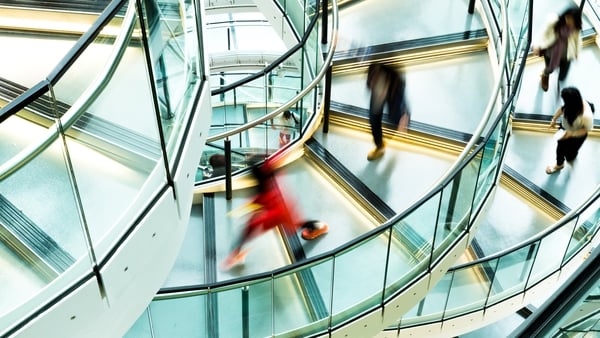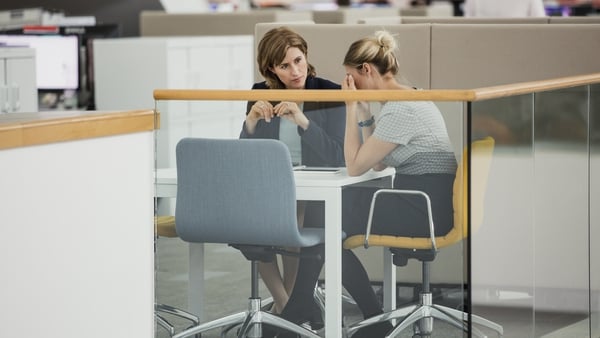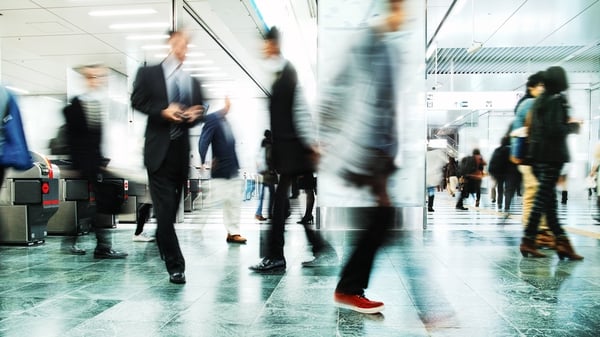Analysis: businesses are increasingly relying on hot desks or office hoteling when employees are back in the workplace.
The pandemic created the need for and expanded opportunities to engage in remote work. By many criteria, remote work has been beneficial for employees and organisations. Employees report higher satisfaction, less exposure to workplace harassment and bullying, lower expenses, higher levels of flexibility, and generally higher levels of productivity. Ireland has devoted time and resources to developing policies and programs to make remote work more feasible and more effective, with special attention to developing the resources needed for remote work in rural communities.
Since the end of the pandemic, managers and executives have been pushing employees to come back to the office, if not full-time, at least several days per week. They often argue (but rarely present credible evidence) that bringing employees back to the office is critical for creativity, problem-solving and employee development.
We need your consent to load this rte-player contentWe use rte-player to manage extra content that can set cookies on your device and collect data about your activity. Please review their details and accept them to load the content.Manage Preferences
From RTÉ Radio 1's Drivetime, the HR Suite's Caroline McEnery on the rise of hot desks in the office
But if you do go back to the office, you are increasingly likely to find that you no longer have an office. Organisations are increasingly relying on the "hot desk" strategy, or to use the more recent euphemism, "hoteling". In an organisation that relies on hoteling, workers are assigned to temporary desks. If they are lucky, they may have a locker where they can store both personal items and the resources they need to perform their jobs, such as reference books or files. They will be required to truck these from their locker to their temporary desk each morning and haul them back to the locker at the end of their shift.
Some employees might have the opportunity to reserve a specific desk for some length of time. If they are lucky, these reservations might even be honoured like reserved seats on Irish trains. But they might very well find someone else camped out at their reserved desk, and end up living a nomadic life while at the office, never knowing where they will work or even whether they will find a place to sit and work.
Informal codes of office hoteling etiquette are emerging, with advice like reserving only what you need, leaving it better than you found it and being mindful of co-workers. These rules are surprisingly similar to those you are asked to follow when camping in the wilderness and, as anyone who has ever spent time at campsites can tell you, they are not always observed. Office hoteling can easily devolve into the sort of struggle for basic services, space and armrests familiar to anyone who has flown in recent years.
We need your consent to load this rte-player contentWe use rte-player to manage extra content that can set cookies on your device and collect data about your activity. Please review their details and accept them to load the content.Manage Preferences
From RTÉ Six One News, how the benefits of remote working hubs have been felt in rural towns
It is easy to see why executives and managers are resorting to hot desks and office hoteling. Commercial real estate is expensive to acquire and maintain, and companies are understandably reluctant to invest in providing the sort of office space that was routine before the pandemic.
Nevertheless, the trend to force workers back to the office, often very much against their will, and to treat them with so little consideration once they get there is likely to backfire for many companies. For many employees, going to work is already like a descent into some of the less dreadful rings of Dante's Inferno, and executives who work to make the office an even more dreary hellscape are unlikely to build loyalty, trust and commitment in their workforce.
Perhaps it is time for executives to rethink "return to the office" mandates. There may be times when it is necessary or at least beneficial to bring workers back to the office, but it is necessary to recognise that this represents a significant sacrifice to many employees. Remote work is not necessarily a picnic, and it can be challenging to juggle work and domestic roles when working from home.
We need your consent to load this rte-player contentWe use rte-player to manage extra content that can set cookies on your device and collect data about your activity. Please review their details and accept them to load the content.Manage Preferences
From RTÉ Brainstorm, how to design a better office
But if you're going to impose a mandate on employees which brings them substantial costs but only ephemeral benefits, the potential for blowback is substantial. At a minimum, don’t force your employees to hot desk while you put your feet up in a comfortable executive suite or permanently reserved desk.
Many years ago, the US military were forced by law to put strict drug testing policies in place. The wisdom of these policies is questionable, but they did one thing that could serve as an example to many organisations. They made sure that the same rules applied to everybody, meaning that admirals working in the Pentagon served under the same rules as the lowliest enlisted person swabbing a deck. When they got a call for urinalysis, everyone had to drop what they were doing and provide the sample.
The same principle would be beneficial in organisations. An executive who forces employees to come back to the office and endure the travails of a hot desk policy should work under the same policy. If temporary quarters, hot desks, lockers, and the daily grind of trundling your effects from locker to desk and back are good enough for your employees, they should also be good enough for you. Let the CEO and all the top executives spend a few weeks trundling their bits around the office in the hope that they might find a place to sit and work, and I suspect that hoteling will not last long at all.
The views expressed here are those of the author and do not represent or reflect the views of RTÉ






